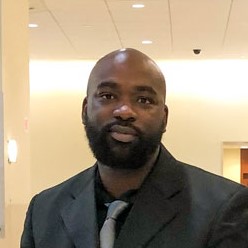 N.C. Innocence Inquiry Commission
Taylor, who was then 25, said that they had just been to a nearby ATM when a man put a pistol against his neck while he was getting out of his car. The man then robbed him and 19-year-old Adcock of approximately $300. He said he didn’t recognize the robber, but described the gunman’s car as a burgundy Crown Victoria with a taped-up rear window. Adcock said she didn’t get a good look at the robber.
Police put out a lookout for the vehicle, and the next day they stopped 19-year-old Israel Grant in a similar car. He had heard that the police were looking for a car like his because of a friend who monitored law-enforcement scanner traffic. The police questioned him and let him go.
Two weeks later, Grant was arrested on a charge of domestic violence. The police questioned him more closely about the robbery, and he said he couldn’t have done it. He had been applying for a job 30 minutes before the robbery was reported and at a pawnshop 20 minutes after.
On September 14, police went to Taylor’s house and showed him a photo array of possible suspects. He quickly picked out Grant. Adcock was also present, but she didn’t look at the photos, telling the officers she was too scared. On September 20, Grant was arrested and charged with two counts of armed robbery as well as possession of a firearm by a felon.
His trial began nearly two years later, on September 15, 2007. Taylor and Adcock both testified, and their testimony was vastly different from their initial statements. Taylor now said that he had recognized Grant right away because Grant frequently stayed with a friend who lived across the street from the house where Taylor and Adcock lived. Taylor said he often worked on Grant’s car, and Grant often supplied Taylor with drugs. Taylor said that Grant had robbed him because Grant believed that Taylor owed him money from a botched drug deal they had done together. He said he hadn’t disclosed this in his initial statements to police because he was scared. When Adcock testified, she now was able to identify Grant as the robber, although she said that her identification was based largely on her familiarity with his car.
Grant did not testify. Despite the time stamps from the employment agency and the pawnshop showing where he was immediately before and after the robbery, he was convicted on August 17, 2007 on all charges. He was sentenced to between 222 months and 286 months in prison.
Grant’s initial appeals were unsuccessful. In 2015, he filed a Motion for Appropriate Relief. While most of his claims asserted ineffective counsel, Grant now had a significant piece of new evidence. Adcock had recanted. In an affidavit dated March 10, 2014 that was obtained by a friend of Grant’s, Adcock said she had never been robbed by Grant nor seen him rob anyone else at the Circle K in 2005. While most of Grant’s motion was denied, his conviction for robbing Adcock was overturned on May 28, 2015, and his sentence was adjusted. He was released from state prison on January 12, 2016, and immediately transferred to federal prison to serve two years on an unrelated weapons charge. He was released from federal prison August 3, 2018.
Grant had also asked the North Carolina Innocence Inquiry Commission in 2013 to investigate his case. In March 2017, investigators with the commission interviewed Adcock. She said that she was never robbed and that she never saw anyone rob Taylor, but she couldn’t say whether he had been robbed at some other time. Two months later, investigators interviewed Taylor. He stuck with a rough version of what he had testified to, that Grant had robbed them at the Circle K because of the drug deal, and that he had not wanted to call the police, but Adcock panicked and called 911.
The commission met on November 19, 2017 to consider Grant’s claim of factual innocence. Adcock and Taylor testified, and their stories changed again. While the stories didn’t entirely overlap, they both agreed that there had been no robbery. Adcock said that at about the time that Grant had been harassing Taylor over money from their drug deal, Taylor had also spent $300 that his grandfather had fronted him to buy marijuana and then resell at a profit. He couldn’t tell his grandfather the truth, she said, so he concocted a story of the robbery to get a police report that would help cover his tracks.
Taylor told the commission that Grant and his friends had tried to physically harm him earlier on August 15, 2005, but he had chased them off with a gun. He said he then made up the story about the robbery in an effort to keep Grant at bay. Tellingly, neither he nor Adcock had used the ATM before going to the Circle K. They didn’t have access to that machine, and there was no evidence that the police ever checked with the bank. Grant also testified and said that while he had threatened Taylor over the money that he thought he was owed, there was no altercation on the day of the alleged robbery.
After reviewing the testimony and other evidence, the commission concluded at the end of the hearing that there was sufficient proof of Grant’s factual innocence. It forwarded the case to a three-judge panel, which ruled on Jan. 18, 2019 that Grant had proven his innocence.
In May 2019, Grant was awarded $515,479 in state compensaiton.
– Ken Otterbourg
|